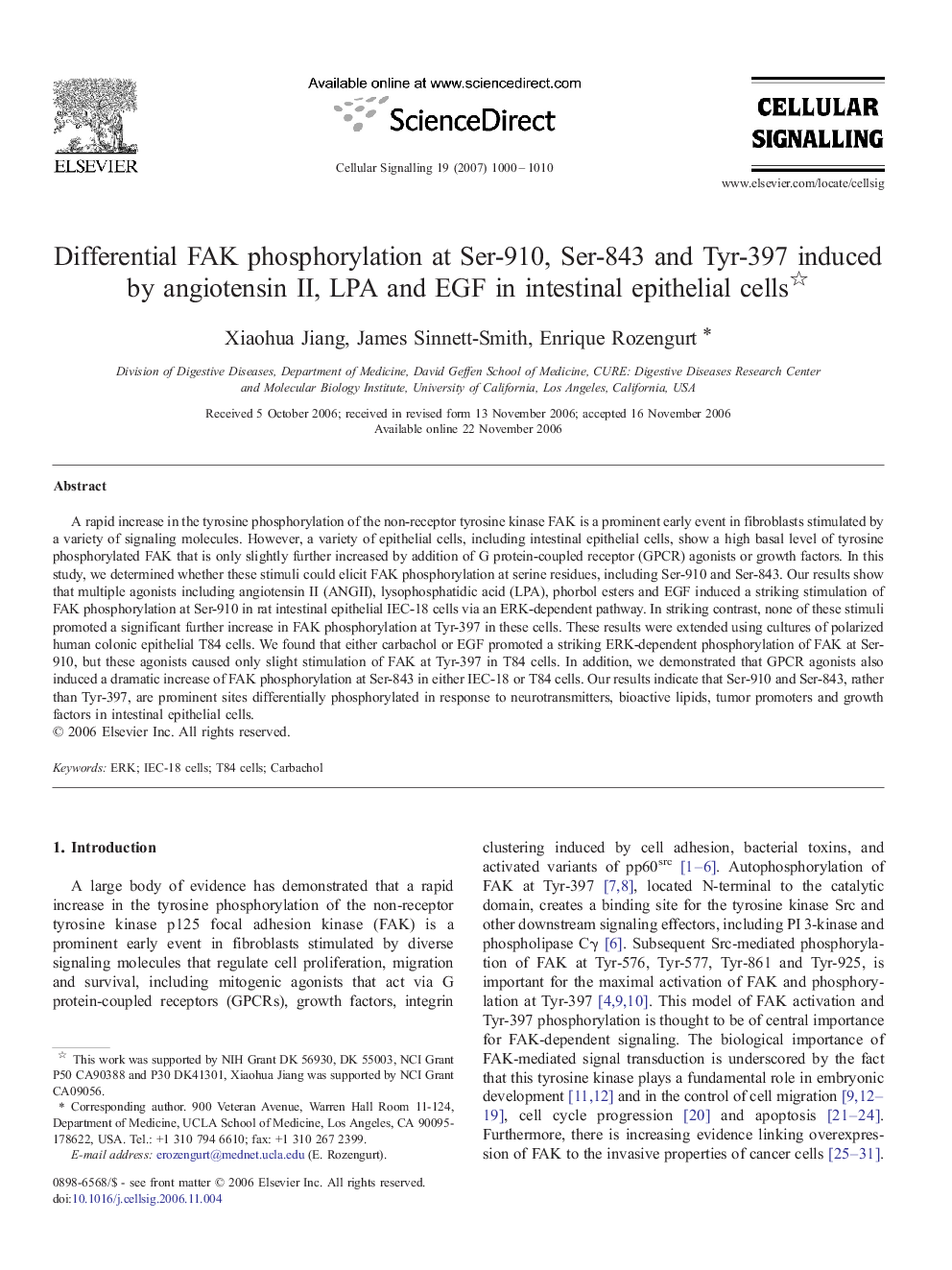| Article ID | Journal | Published Year | Pages | File Type |
|---|---|---|---|---|
| 10816248 | Cellular Signalling | 2007 | 11 Pages |
Abstract
A rapid increase in the tyrosine phosphorylation of the non-receptor tyrosine kinase FAK is a prominent early event in fibroblasts stimulated by a variety of signaling molecules. However, a variety of epithelial cells, including intestinal epithelial cells, show a high basal level of tyrosine phosphorylated FAK that is only slightly further increased by addition of G protein-coupled receptor (GPCR) agonists or growth factors. In this study, we determined whether these stimuli could elicit FAK phosphorylation at serine residues, including Ser-910 and Ser-843. Our results show that multiple agonists including angiotensin II (ANGII), lysophosphatidic acid (LPA), phorbol esters and EGF induced a striking stimulation of FAK phosphorylation at Ser-910 in rat intestinal epithelial IEC-18 cells via an ERK-dependent pathway. In striking contrast, none of these stimuli promoted a significant further increase in FAK phosphorylation at Tyr-397 in these cells. These results were extended using cultures of polarized human colonic epithelial T84 cells. We found that either carbachol or EGF promoted a striking ERK-dependent phosphorylation of FAK at Ser-910, but these agonists caused only slight stimulation of FAK at Tyr-397 in T84 cells. In addition, we demonstrated that GPCR agonists also induced a dramatic increase of FAK phosphorylation at Ser-843 in either IEC-18 or T84 cells. Our results indicate that Ser-910 and Ser-843, rather than Tyr-397, are prominent sites differentially phosphorylated in response to neurotransmitters, bioactive lipids, tumor promoters and growth factors in intestinal epithelial cells.
Keywords
Related Topics
Life Sciences
Biochemistry, Genetics and Molecular Biology
Biochemistry
Authors
Xiaohua Jiang, James Sinnett-Smith, Enrique Rozengurt,
